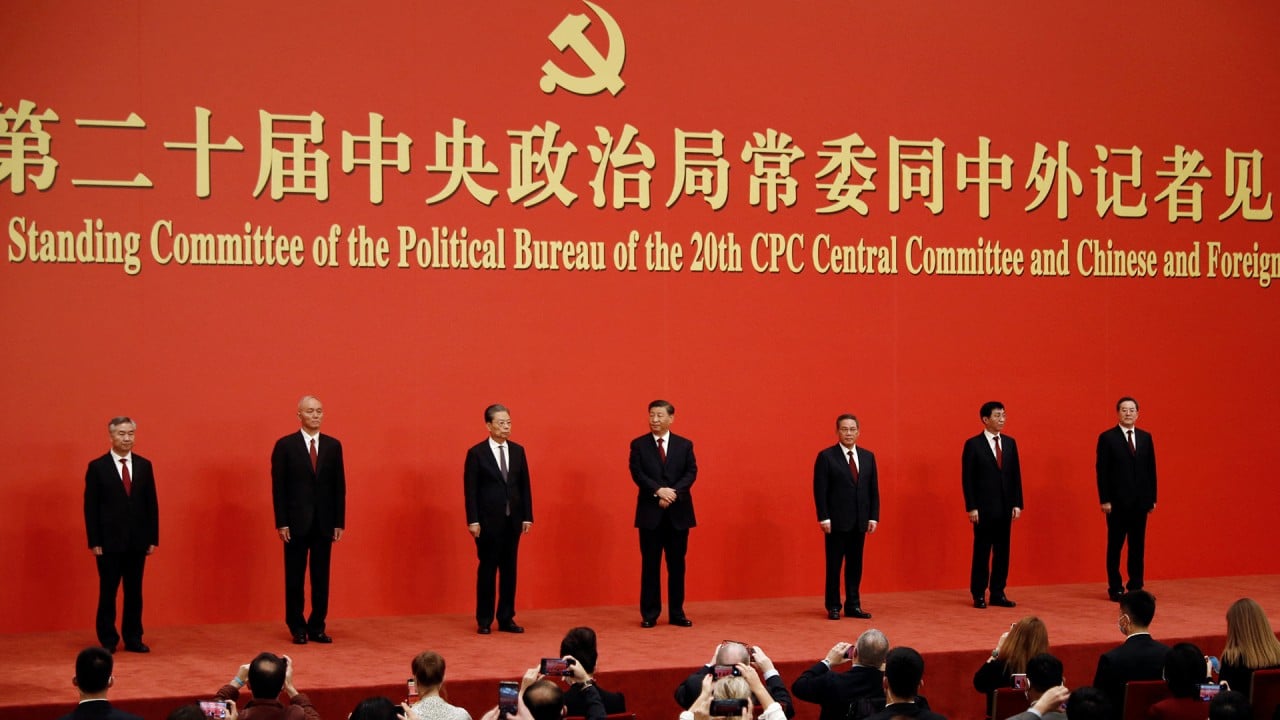
China’s Li Qiang makes speech for the State Council, hinting at premier’s job ahead
- In first public appearance representing the country’s cabinet, Li says China’s leadership is working to create a favourable business environment
- Li may already be carrying out premier duties, says professor, even though the post will not be made official until annual legislative session in March
According to an official announcement in Communist Party mouthpiece People’s Daily on Monday, Li attended the opening ceremony of the 13th national congress of the All-China Federation of Industry and Commerce and delivered a speech “on behalf of the Communist Party’s Central Committee and the State Council”.
It is the first public announcement so far of Li representing the State Council, despite the statement describing Li’s official capacity only as “member of the Politburo Standing Committee”.
The State Council’s website does not have an entry for Li Qiang, and still shows Premier Li Keqiang, alongside vice-premiers and state councillors, as the body’s leaders.
‘China’s doors will be opened wider’: Premier Li tells trade, finance heads
He left his job as Shanghai’s party chief in late October and has attended a variety of events in recent weeks.
These include a conference where key leaders of the party hosted outside experts to hear suggestions for economic focus in the coming year, as well as the 5th China International Import Expo at which he called on China to “seize the trend of economic globalisation”.
Alfred Wu, an associate professor at the Lee Kuan Yew School of Public Policy at the National University of Singapore, said Li’s public affiliation with the State Council was a clear sign that he was already involved in operating the body that is the Chinese government’s cabinet.
“I believe Li may even informally have started performing his duties as premier,” he said.
Wu said letting him start working without an official appointment was in line with Xi’s style to bend norms.
China’s laws require that a premier’s appointment is confirmed at the annual assembly at the National People’s Congress. Appointments of vice-premiers must be made at either the annual session or the more frequent meeting of the NPC Standing Committee.
However, there is no law stipulating how appointments are made to the party committee of the State Council, which is also headed by the premier. It is not clear if Li is already a member of the party committee.
At the event on Sunday, Li said China’s leadership had rolled out reforms to bolster private sector development and was persisting to create a favourable environment.
“Thanks to these efforts, China’s private sector has expanded remarkably in terms of size and strength, and has played an irreplaceable role in boosting economic development, creating jobs, improving people’s livelihoods, promoting innovation, deepening reforms and advancing opening-up,” he said.
He said the federation’s branches should try to encourage private firms to advance towards common prosperity and lead them to revitalise rural regions, stabilise employment and increase income.
Li was the party chief of Shanghai throughout the severe Covid-19 outbreak and months-long lockdown.
In the early 2000s he worked closely with Xi. In 2004, Li became secretary general of the party committee of Zhejiang province, where Xi was party chief. Li served under him in that role until 2007, when Xi left to head the party in Shanghai.
Since Xi rose to the party’s top spot in 2012, Li has been handed top jobs in eastern coastal growth hubs.

.jpg?itok=H5_PTCSf&v=1700020945)

